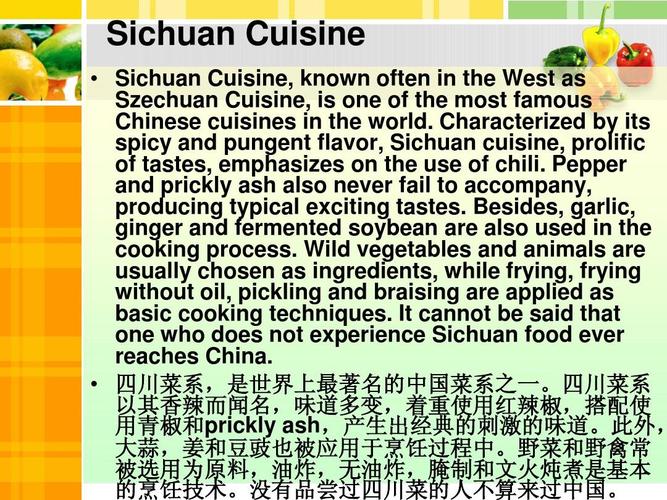介绍中国美食英语作文100词
Chinese cuisine is celebrated worldwide for its rich diversity, exquisite flavors, and profound cultural significance. With a history dating back thousands of years, Chinese culinary traditions have evolved into a comprehensive and influential gastronomic system. This essay will explore the characteristics, regional variations, and cultural importance of Chinese cuisine.
Characteristics of Chinese Cuisine
Chinese cuisine is characterized by its harmonious combination of flavors, colors, and textures. A fundamental principle is to achieve a balance between the five key tastes: sweet, sour, salty, bitter, and spicy. Additionally, Chinese dishes often feature a variety of cooking methods such as stirfrying, steaming, braising, and deepfrying to create a diverse range of flavors and textures.
Regional Variations
China's vast size and diverse landscapes have given rise to a wide array of regional culinary styles, each with its own unique ingredients and cooking techniques. For example, Sichuan cuisine is renowned for its bold and fiery flavors, often incorporating Sichuan peppercorns and chili peppers, while Cantonese cuisine emphasizes fresh, natural flavors and meticulous preparation methods. Other notable regional styles include Shandong, Hunan, and Jiangsu cuisine, each offering distinct culinary experiences.

Cultural Importance
Chinese cuisine holds immense cultural significance, serving as a unifying force that connects people across different regions and generations. Sharing a meal is a cherished social activity in Chinese culture, symbolizing harmony and togetherness. Additionally, traditional Chinese medicine principles have influenced culinary practices, with an emphasis on the therapeutic properties of certain ingredients and their impact on health and wellbeing.
Recommendations for Exploring Chinese Cuisine
For those seeking to explore the rich tapestry of Chinese cuisine, visiting authentic Chinese restaurants, attending culinary workshops, and experimenting with traditional recipes at home are excellent ways to gain a deeper appreciation for this culinary tradition. Additionally, engaging with Chinese culinary literature and documentaries can provide valuable insights into the historical and cultural foundations of Chinese gastronomy.
In conclusion, Chinese cuisine is a multifaceted and culturally significant culinary tradition that continues to captivate and inspire food enthusiasts around the world. Its emphasis on harmony, balance, and diversity makes it a truly remarkable and enduring component of Chinese culture.











